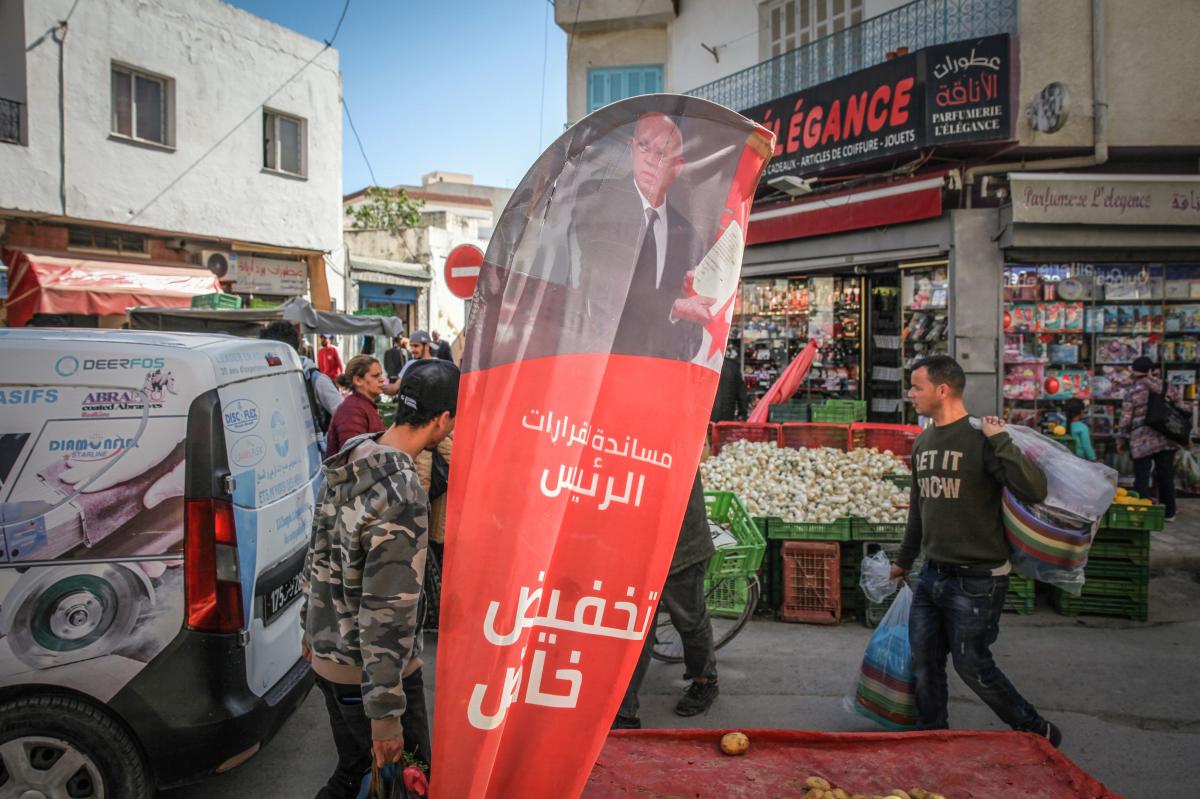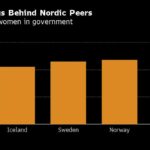
(Bloomberg) — After sending in tanks to shutter Tunisia’s last parliament, the leader of a nation once seen as the Arab world’s most progressive democracy is taking no chances in the vote for its successor.
Most Read from Bloomberg
Tunisians will pick from a sharply curtailed list of candidates in parliamentary elections Saturday. None of them will list political affiliations under rules introduced under President Kais Saied to check the influence of parties.
They’ll sit in what one advocacy group has dubbed a “dummy” assembly. Saied shuttered the last one in July 2021 after a quarrel with lawmakers he accused of holding back the country.
“Authorities have been steadily laying the foundations for a dictatorial system,” since then, said Faten Kallel, a former junior minister for youth and sports.
“This election is a crucial part of that process,” she said. A former member of center-right party Afek Tunis, Kallel quit politics in 2018 and now runs a consultancy firm.Tunisia Reaches Agreement With IMF Over Crucial Funding ProgramTunisia’s politics have held a special place in the region since its people overthrew long-time dictator Zine El Abidine Ben Ali in 2011. Those protests sparked similar ‘Arab Spring’ revolts across the Middle East but Tunisia was had the only one with an enduring political transition.
Now, in a new parliament stripped of executive oversight and the power to impeach the president, critics allege Tunisia will be another step closer to the one-man rule of the past.
Saied’s called the political parties that dominated post-revolt politics a symptom of corruption and years of malaise. From an economic perspective, a more compliant assembly may temporarily give Tunisia the institutional unity it needs to pass contentious spending cuts and secure a $1.9 billion International Monetary Fund deal, averting fears of a default.
But it will do little for the long-term trajectory of a country that is now seeing its youth attempt to flee across the Mediterranean at the highest rate in a decade. The tourism and agriculture-led economy is languishing in its worst state in years. Political freedom has been gradually been curtailed and inflation is at its highest level since the 1980s.
Many Tunisians have given up on politics to change it.
“I stopped believing in Saied and in politics. He was supposed to fix things,” said Sabrine, 29, who sells portions of steamed fava beans from a cart in the Tunis district where Saied once lived.
The election is “good for opportunists looking for a seat,” she said, asking that only her first name be used so she could speak freely.
Just hours before, Saied had made an impromptu night-time visit to the area to meet voters and was met by a barrage of criticism over a lack of drinking water and jobs.
He responded by accusing opponents of serving a foreign agenda, a remark he has frequently made in response to public criticism.
With little public campaigning and media access to contenders subject to approval by authorities, Tunisians know relatively little about the people they’re being asked to vote for. About 1,050 candidates are running for Tunisia’s 161 parliamentary seats, although in some districts there’s just a single contender.
Major parties, including moderate Islamists Ennahda and the secular Democratic Current, are boycotting the election, with some holding protests last week demanding Saied, 64, resign. The head of the populist Free Destourian Party, Abir Moussi, has called the vote “a crime against the Tunisian people.”Tunisia Vows Subsidy Reform as Union Digs in Against IMF Deal
The economic turmoil is unlikely to pose an immediate threat to the leadership because of a lack of tangible alternatives, observers say. On the streets of Tunis, the main sentiment is one of resignation.
“Politicians haven’t delivered on 1% of their promises since the revolution,” said 43-year-old Bassam Lakhal, a waiter in a central Tunis cafe who served Saied before he rose to power.
“They promised us more jobs, more development and freedom and less corruption. Yet, the exact opposite has been happening.”
Most Read from Bloomberg Businessweek
©2022 Bloomberg L.P.




